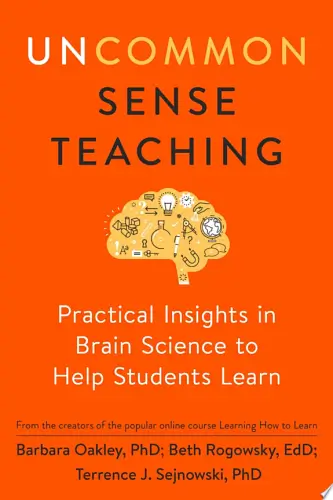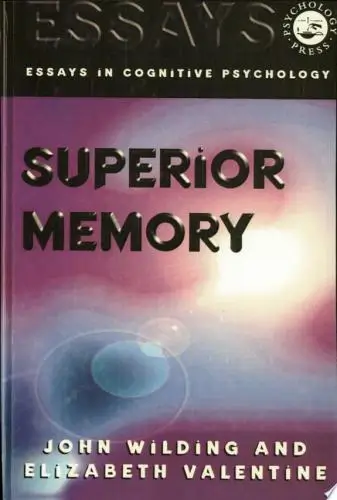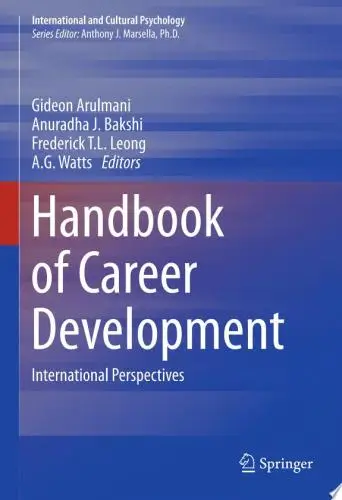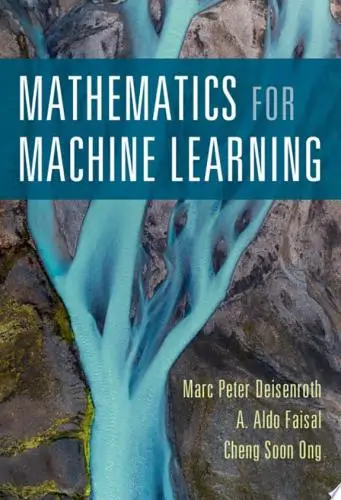
Uncommon Sense Teaching
Practical Insights in Brain Science to Help Students Learn
What's it about?
Uncommon Sense Teaching by Barbara Oakley, PhD, offers you practical strategies to enhance your learning and teaching methods. You’ll discover how cognitive science can inform your approach, helping you understand the importance of active engagement and mindful practice. The book emphasizes the need to adapt your techniques based on how the brain processes information, ensuring that you can foster deep understanding rather than rote memorization. With insightful tips, you can transform your learning experience and improve your teaching effectiveness.
About the Author
Barbara Oakley, PhD, is an educator and author known for her work on learning techniques and cognitive psychology. She co-created the "Learning How to Learn" MOOC and authored "A Mind for Numbers." Her writing combines scientific insights with practical advice, emphasizing strategies for effective learning and problem-solving.
15 Key Ideas of Uncommon Sense Teaching
Embrace the Power of Interruptions
Strategically scheduling breaks can enhance learning retention and creative insight.
Imagine cramming for an exam without a break—an endless marathon of facts. Now picture taking deliberate breaks that somehow make everything click like a well-tuned orchestra.
- Breaks allow information to settle and integrate into long-term memory.
- Strategic interruptions refresh focus, increasing efficiency and reducing cognitive burnout.
- Intermissions facilitate subconscious processing, often leading to 'Aha!' moments.
Set a timer for a 25-minute focused session followed by a 5-minute break and observe how your concentration and comprehension improve.
Don’t mistake aimless browsing as a productive break; ensure your breaks are active and mentally refreshing.
Teach to Learn, Learn to Teach
Explaining concepts to others is one of the most effective ways to deepen your understanding.
It’s like going on a treasure hunt where sharing your newfound knowledge with fellow seekers transforms you from a mere collector into a master of the map.
- Teaching forces the brain to organize knowledge more clearly, strengthening neural pathways.
- Explaining topics to others can highlight areas you didn’t initially understand, reinforcing your own comprehension.
- The teaching process turns passive recipients active participants, enhancing retention and engagement.
Explain a complex idea you’re learning to a friend, family member, or even the mirror, noticing areas of clarity and confusion.
Avoid reciting information verbatim; strive for deep understanding and simplify where possible.
Harness the Power of Multisensory Learning
Engaging multiple senses in the learning process dramatically enhances comprehension and recall.
Imagine learning to cook just by reading a recipe, versus smelling the ingredients, hearing the sizzle, and tasting the flavor—one approach brings the experience to life.
- Combining visual, auditory, and kinesthetic resources creates a richer neural network for information retrieval.
- Multisensory learning links concepts to different brain regions, increasing the likelihood of recall during application.
- Engagement through varied senses caters to different learning preferences, boosting overall class comprehension.
While studying, sketch diagrams, read aloud, or watch video content to make new concepts stick more effectively.
Don’t just rely on one sensory mode; balance your study techniques to reinforce learning through varied sensory experiences.
Deeper knowledge. Personal growth. Unlocked.
Unlock this book's key ideas and 15M+ more. Learn with quick, impactful summaries.
Read Full SummarySign up and read for free!
Uncommon Sense Teaching Summary: Common Questions
Uncommon Sense Teaching focuses on practical approaches to enhance learning by applying insights from neuroscience and cognitive psychology, making teaching more effective and engaging for both educators and students.
Experience Personalized Book Summaries, Today!
Discover a new way to gain knowledge, and save time.
Sign up for our 7-day trial now.
No Credit Card Needed

Similar Books

Learning Habits
Sarah Nicholl
Field Trip Mysteries: The Crook that Made Kids Cry
Steve Brezenoff
Superior Memory
John M. Wilding
Thinking, Fast and Slow
Daniel Kahneman
Peak
Anders Ericsson
Demystifying Climate Models
Andrew Gettelman
The Hobbit
J.R.R. Tolkien
Handbook of Career Development
Gideon Arulmani
My Oxford Year
Julia Whelan
Mathematics for Machine Learning
Marc Peter DeisenrothTrending Summaries

Peak
Anders Ericsson
Never Split the Difference
Chris Voss
Smart Brevity
Jim VandeHei
The Psychology of Money
Morgan Housel
The First 90 Days
Michael D. Watkins
Atomic Habits
James Clear
Thinking, Fast and Slow
Daniel Kahneman
The Body Keeps the Score
Bessel van der Kolk M.D.
The Power of Regret
Daniel H. Pink
The Compound Effect
Darren HardyNew Books

The White Night of St. Petersburg
Michel (Prince of Greece)
Demystifying Climate Models
Andrew Gettelman
The Hobbit
J.R.R. Tolkien
The Decision Book
Mikael Krogerus
The Decision Book: 50 Models for Strategic Thinking
Mikael Krogerus
Fichte
Johann Gottlieb Fichte
Do No Harm
Henry Marsh
This is Going to Hurt
Adam Kay
This Is Your Brain on Joy
Earl Henslin
